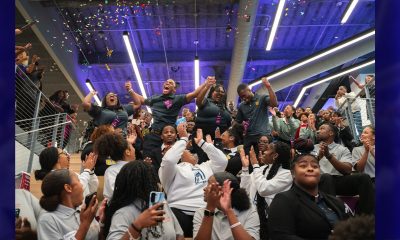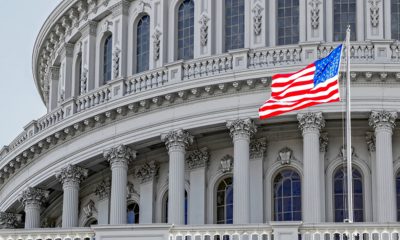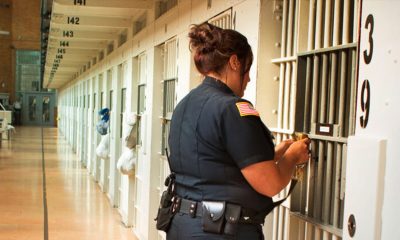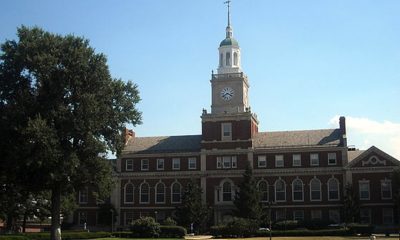BayCityNews
State Parks Visitors Can Collect Digital Badges in New App-Based Passport Program
State park visitors can now track their adventures in California’s 280 parks and earn badges along the way in a digital passport program launched on Wednesday. No longer are the days where state park lovers have to carry around a paper passport to be stamped at the visitor center — now, visitors can check-in at each park and receive a badge on their phones, accessible via the California State Parks Apps.
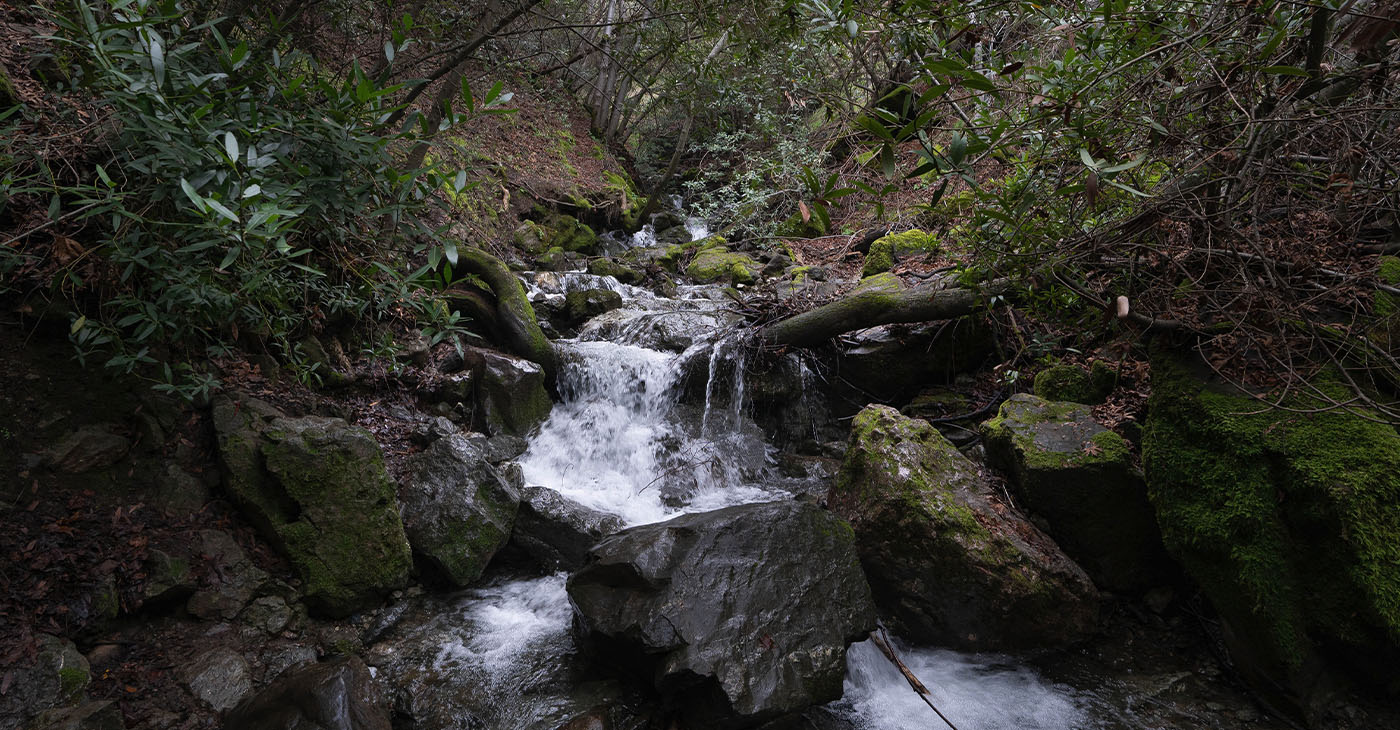
By Olivia Wynkoop
Bay City News Foundation
State park visitors can now track their adventures in California’s 280 parks and earn badges along the way in a digital passport program launched on Wednesday.
No longer are the days where state park lovers have to carry around a paper passport to be stamped at the visitor center — now, visitors can check-in at each park and receive a badge on their phones, accessible via the California State Parks Apps.
“This new Passport Program adds a layer of play that’ll help entice new visitors – especially digital natives and folks more accustomed to screens and feeds than streams and fields – to find that out for themselves,” said California State Parks Director Armando Quintero.
Each check-in will be added to the user’s profile, where they can also add photos. Users are able to recount their adventures, share with their friends and take note of which parks to visit next.
“With the digital Passport Program and interactive enhancements in the app, everyone will have the opportunity to create personal and meaningful relationships with parks while also developing a deeper experience – both during their park visit and long after they leave through digital community engagement,” said Kindley Walsh Lawlor, president and CEO of Parks California. “These lasting connections will foster the next generation of park stewards who will protect these amazing places.”
The state parks app, built by the technology platform OuterSpatial, also provides information on park closures, directions and wayfinding. OuterSpatial is specifically designed for outdoor organizations hoping to expand their access and engagement to visitors.
“We believe in empowering organizations to deliver the best outdoor experience to visitors. The State of California has done incredible work to provide easy access to the outdoors to people of all ages and abilities, and it’s a huge milestone for OuterSpatial to partner with California State Parks and its new digital Passport Program as part of that progress,” said Ryan Branciforte, CEO of OuterSpatial. “Our collaboration will help accelerate their popular Passport Program and will encourage a diverse audience to enjoy all that California has to offer, from its oceans, mountains, lakes, and deserts, to the rest of what its parks have to offer.”
Bay Area
Arrests Made at People’s Park as Preparations For Construction on Site Begin Again
Seven people were arrested early Thursday morning at Berkeley’s People’s Park as fencing was put up in preparation for a controversial construction project to build housing for students and formerly unhoused people on the public park.
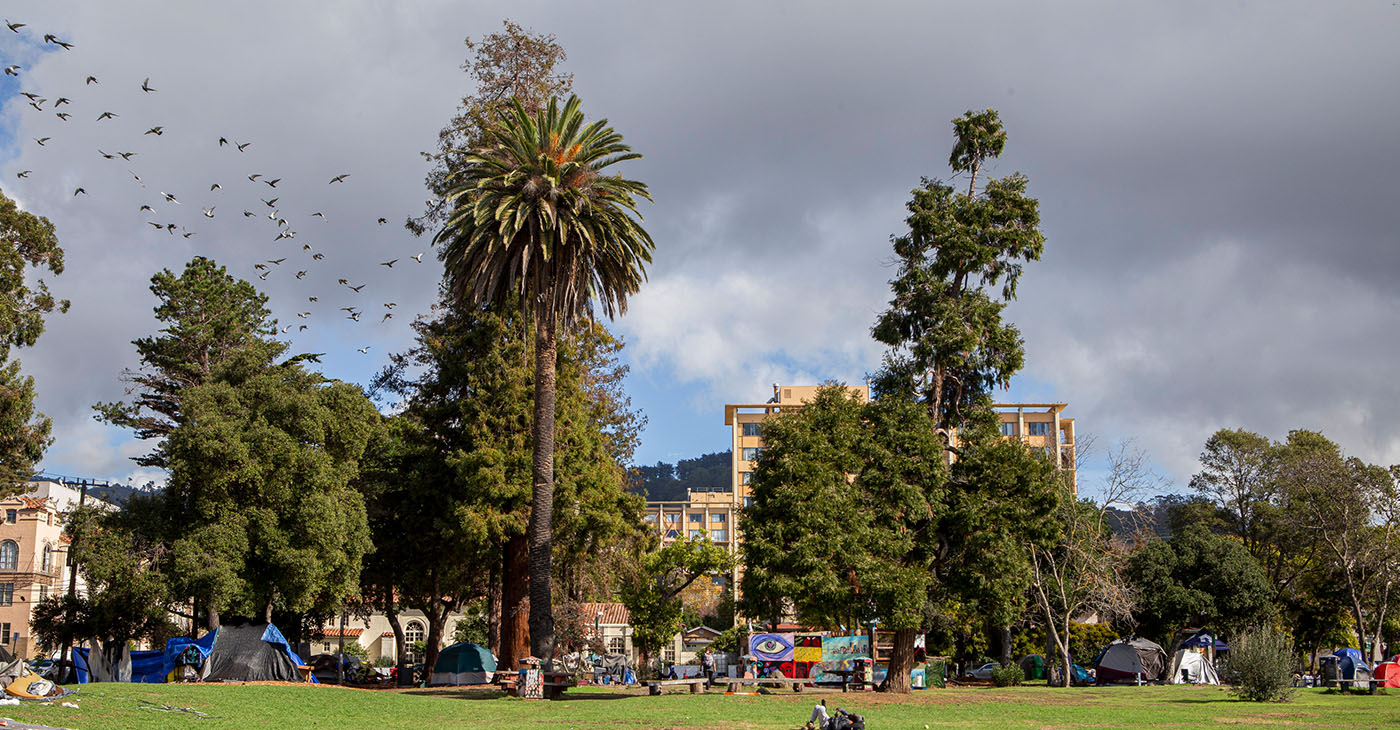
By Bay City News
Seven people were arrested early Thursday morning at Berkeley’s People’s Park as fencing was put up in preparation for a controversial construction project to build housing for students and formerly unhoused people on the public park.
Fencing and double-stacked shipping containers will continue to be installed over the next three to four days and surrounding streets will be closed off for about six days, according to a university spokesperson.
Opponents fought the University of California, Berkeley’s plan to build on the site when construction began in August 2022, but they were dealt a setback when Gov. Gavin Newsom signed a bill last year that was unanimously backed by the state Legislature to exempt the university from a requirement to consider alternative sites for the project.
The arrests Thursday morning were for trespassing, with two also arrested for failure to disperse, according to the university. They were cited and released after being booked into jail.
An appeal on the university’s construction project is still being heard by the state Supreme Court, but the university said it has the legal right to close off the construction zone while the case is litigated.
“Given that the existing legal issues will inevitably be resolved, we decided to take this necessary step now in order to minimize disruption for the public and our students when we are eventually cleared to resume construction,” UC Berkeley Chancellor Carol Christ said in a statement.
“Unfortunately, our planning and actions must take into account that some of the project’s opponents have previously resorted to violence and vandalism, despite strong support for the project on the part of students, community members, advocates for unhoused people, the elected leadership of the City of Berkeley, as well as the Legislature and governor of the state of California,” Christ said.
The plan calls for building housing for 1,100 students and a separate building with 100 apartments for low-income, formerly unhoused people, but activists have fought against the displacement of unhoused people currently living in the park and development on a green space.
The plan would preserve 60% of the 2.8-acre park’s green space and the park would remain open to the public. People living in the park have been offered transitional housing.
Video posted to social media showed trees being cut down and carried by heavy machinery overnight Wednesday into Thursday morning.
Copyright © 2024 Bay City News, Inc. All rights reserved. Republication, rebroadcast or redistribution without the express written consent of Bay City News, Inc. is prohibited. Bay City News is a 24/7 news service covering the greater Bay Area.
Bay Area
Appeals Court Denies Request to Revisit Berkeley’s Natural Gas Ban
The U.S. Court of Appeals for the 9th Circuit has ruled against Berkeley’s pioneering natural gas ban. In a majority decision filed Tuesday, the court said Berkeley’s ordinance banning gas pipelines in new construction runs afoul of the federal Energy Policy and Conservation Act.

By Kiley Russell
Bay City News
The U.S. Court of Appeals for the 9th Circuit has ruled against Berkeley’s pioneering natural gas ban.
In a majority decision filed Tuesday, the court said Berkeley’s ordinance banning gas pipelines in new construction runs afoul of the federal Energy Policy and Conservation Act.
The act “expressly preempts state and local regulations concerning the energy use of many natural gas appliances, including those used in household and restaurant kitchens,” Judge Patrick Bumatay wrote in the majority opinion.
“Instead of directly banning those appliances in new buildings, Berkeley took a more circuitous route to the same result,” Bumatay wrote. “It enacted a building code that prohibits natural gas piping in those buildings from the point of delivery at a gas meter, rendering the gas appliances useless.”
The Berkeley City Council unanimously approved the first-of-its-kind ordinance in July 2019.
It was designed to combat climate change by reducing natural gas emissions throughout the city by encouraging the use of more ecologically friendly electrical hookups.
“Climate change is an existential threat to our city, our homes, and our future,” Councilmember Kate Harrison, who authored the ordinance, said at the time. “It is time to take aggressive action to reduce our emissions across all sectors.”
The California Restaurant Association sued the city in November 2019, and in 2021 a lower court ruled against the restaurant organization.
In that ruling, the court found that the local ordinance didn’t conflict with federal regulations because it indirectly applied to appliances covered by federal law and that the federal rules should be interpreted so as not to “sweep into areas that are historically the province of state and local regulation.”
Last year, a panel of the 9th Circuit disagreed and ruled that federal law preempted the city’s new ordinance and on Tuesday, the full panel of judges denied a request to rehear the case.
Judge Michelle Friedland, writing the dissenting opinion for the 9th Circuit, said the majority opinion “misinterprets the statute’s key terms” and “needlessly blocks Berkeley’s effort to combat climate change, along with the equivalent laws passed by other local governments. Our system of federalism requires much more respect for state and local autonomy.”
Copyright © 2024 Bay City News, Inc. All rights reserved. Republication, rebroadcast or redistribution without the express written consent of Bay City News, Inc. is prohibited. Bay City News is a 24/7 news service covering the greater Bay Area.
Activism
Newsom Signs 56 Housing Bills to Boost Affordability, Help Tenants
Housing developments will now be more streamlined with less red tape, density laws can be overruled in the interest of housing, and institutions like colleges or religious organizations can now use portions of their property to build housing. Newsom also signed a bill that will please anyone who has tried to rent in California on a limited income: Landlords can now only collect one months’ rent as a security deposit instead of two.
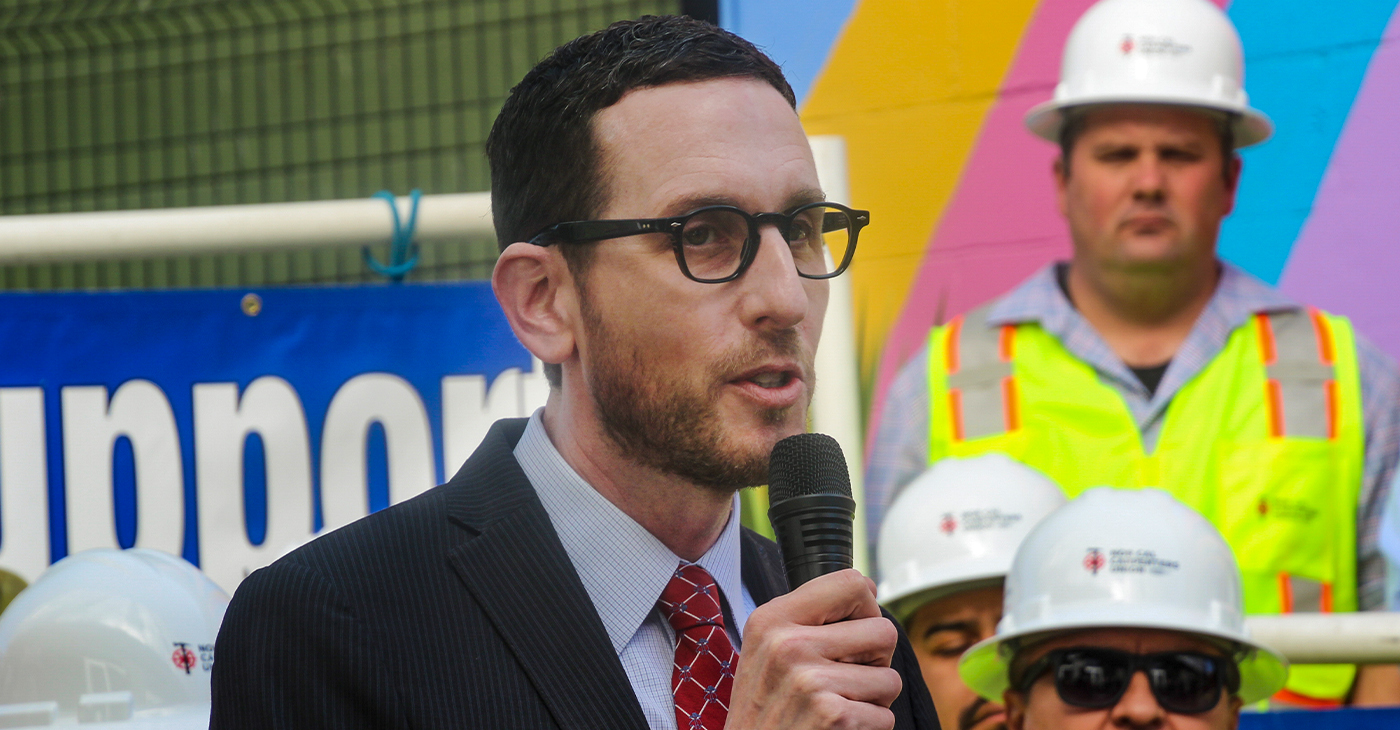
By Katy St. Clair | Bay City News
California Gov. Gavin Newsom on Wednesday signed multiple housing bills aimed at tackling the state’s lack of affordable housing and making it easier for tenants to rent a home in the first place.
Newsom signed a whopping 56 bills into law which he said, “incentivize and reduce barriers to housing and support the development of more affordable homes.”
Housing developments will now be more streamlined with less red tape, density laws can be overruled in the interest of housing, and institutions like colleges or religious organizations can now use portions of their property to build housing. Newsom also signed a bill that will please anyone who has tried to rent in California on a limited income: Landlords can now only collect one months’ rent as a security deposit instead of two.
State Sen. Scott Wiener (D-San Francisco) is especially pleased with the signings, as several of the bills were his, including creating a tax increment financing structure to replace 5,800 affordable homes in San Francisco that have been lost to redevelopment.
“California desperately needs to ramp up housing production and the Governor’s action today helps put us on a path to that goal,” said Wiener in a statement Wednesday.
Of Wiener’s bills, Newsom signed Senate Bill 423, which accelerates the development of affordable housing by strengthening the provisions of SB 35, which will sunset at the end of 2025. SB 35, another bill from Wiener back in 2016, allows projects to go through a simplified and expedited housing approval process in areas that are not on track to meet their housing production goals.
SB 423 continues the momentum of 35, but also includes “strong new labor standards,” such as higher wages and health benefits for workers on housing developments.
Wiener also put forth the San Francisco Replacement Housing Act, or Senate Bill 593, which aims to mend the mistakes of the past by adding affordable housing to neighborhoods that were demolished for growth, displacing their lower-income residents. According to Wiener, examples of these neighborhoods are Japantown, SoMA, and the Western Addition. SB 593 will create 5,800 affordable homes in the city, Wiener said.
Assembly Bill 12 was signed by the governor as well. Assemblymember Matt Haney (D-San Francisco) backed the bill, which expands tenant protections by limiting security deposits to one month’s rent in instead of up to three times the rent.
“Massive security deposits can create insurmountable barriers to housing affordability and accessibility for millions of Californians,” said Haney on social media Wednesday. “Despite skyrocketing rents, laws on ensuring affordable security deposits haven’t changed substantially since the 1970s. The result is that landlords lose out on good tenants and tenants stay in homes that are too crowded, unsafe or far from work.”
Other bills signed by Newsom establish penalties for CEQA abuse, allowing affordable accessory dwelling unit (ADU) condos, and expanding density bonuses, which give developers the ability to increase density above the maximum allowed in a municipality’s General Plan.
“It’s simple math,” said Newsom in a statement released by his office. “California needs to build more housing and ensure the housing we have is affordable.”
For a full list of all the housing-related bills signed by Gov. Newsom, go to http://leginfo.legislature.ca.gov.
-

 Activism4 weeks ago
Activism4 weeks agoOakland Post: Week of March 20 – 26, 2024
-

 #NNPA BlackPress3 weeks ago
#NNPA BlackPress3 weeks agoCOMMENTARY: D.C. Crime Bill Fails to Address Root Causes of Violence and Incarceration
-

 #NNPA BlackPress4 weeks ago
#NNPA BlackPress4 weeks agoFrom Raids to Revelations: The Dark Turn in Sean ‘Diddy’ Combs’ Saga
-

 #NNPA BlackPress3 weeks ago
#NNPA BlackPress3 weeks agoMayor, City Council President React to May 31 Closing of Birmingham-Southern College
-

 #NNPA BlackPress4 weeks ago
#NNPA BlackPress4 weeks agoCOMMENTARY: Lady Day and The Lights!
-

 Activism3 weeks ago
Activism3 weeks agoOakland Post: Week of March 27 – April 2, 2024
-

 #NNPA BlackPress4 weeks ago
#NNPA BlackPress4 weeks agoBaltimore Key Bridge Catastrophe: A City’s Heartbreak and a Nation’s Alarm
-

 #NNPA BlackPress4 weeks ago
#NNPA BlackPress4 weeks agoBaltimore’s Key Bridge Struck by Ship, Collapses into Water


